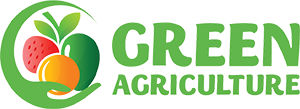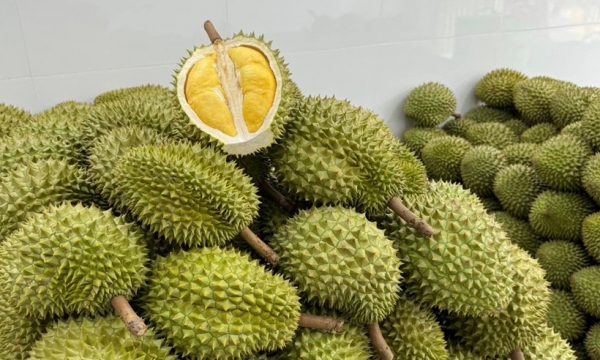The Ministry of Agriculture and Rural Development (MARD) has requested specialized agencies to work closely with law enforcement to strictly handle violations such as the use of fake phytosanitary certificates and counterfeit test results for customs clearance and fruit exports.
Mr. Hoàng Trung, Deputy Minister of MARD, shared this information with Tuổi Trẻ regarding measures to control the quality of fruit before export to China, after the General Administration of Customs of China implemented additional measures for Vietnamese fruits exported to this market.
Mr. Trung said: The Ministry of Agriculture and Rural Development also collaborates closely with the General Administration of Customs of China. If a violation is detected or a shipment is flagged, Vietnam will immediately recall and halt exports of the violating items.
Absolutely avoid using banned chemicals
What actions have Vietnamese authorities taken in response?
-
Immediately upon receiving notification, MARD directed the Plant Protection Department to actively cooperate with the General Administration of Customs of China for them to recognize the inspection laboratories. So far, nine laboratories have been recognized by China.
-
Additionally, the Ministry has submitted six more dossiers for approval to meet the demand for exports, as durians and other Vietnamese fruits are being harvested or soon to be harvested in large quantities.
-
The Ministry also directed specialized agencies to collaborate with local authorities to implement food safety management models, especially focusing on the use of chemicals in cultivation areas and packaging facilities. Localities with fruit exports are actively carrying this out.
-
We also require specialized agencies to work closely with law enforcement to handle violations such as the use of fake phytosanitary certificates or fraudulent test results for customs clearance.
-
At the same time, we will coordinate closely with the General Administration of Customs of China. If they detect a violation or flag a shipment, Vietnam will immediately recall and halt exports of the violating items.
Some businesses are still hesitant to export again due to concerns about post-inspection procedures from China. Do you have any advice for these businesses?
-
According to reports from the plant quarantine authorities at border gates, shipments of fruits, including durian, have been ensuring fast quarantine procedures and have been able to export without any blockage at the border.
-
When exporting to China, they inspect according to regulations, and any violations are communicated to us. At that time, the Ministry will continue to coordinate to address any issues.
-
However, businesses must ensure that their goods comply with the regulations and requirements of the importing market, especially by absolutely avoiding the use of banned chemicals or exceeding the maximum residue limits allowed by the importing country.
The most fundamental solution is to have food safety control programs in place at farms, cultivation areas, packaging, processing, and storage facilities.
Implement a program to control from the root
With 9 laboratories recognized by China, will they meet the demand for testing during the durian harvest season?
-
So far, the inspection laboratories have fully met the demand for serving exports to the Chinese market.
-
With the principle of not allowing shortages of laboratories or a large number of test samples causing congestion, the Ministry has directed the supplementation and reinforcement of resources, manpower, and equipment for the laboratories.
-
We have also encouraged businesses to cooperate with the laboratories to ensure compliance with the chemical requirements of the importing country. This is being done very well. Recently, both sides met and agreed on sample-taking methods, which has significantly reduced the number of violating shipments.
In the long term, what solutions does MARD have to have China lift this regulation?
-
As required by China, the Ministry has instructed units to collaborate with local authorities to inspect, assess, and identify the causes and high risks of active ingredients that may exceed the maximum residue limits set by China. At the same time, we have provided guidance on technical solutions for sustainable farming practices so that farmers and businesses can produce responsibly.
-
The Ministry has also instructed the urgent completion of technical reports (identifying causes and solutions) to send to China for negotiation. The aim is to resume implementing the protocol that the two countries have signed, so we won’t need to apply additional measures as we do now.
-
Additionally, the Ministry is instructing the Plant Protection Department to build and immediately implement a program for monitoring pesticide residue across all fruit-exporting regions, ensuring that control is done at the source.
For example, in Tiền Giang and Long An, all exported fruits are monitored and controlled according to this program to ensure that residue levels do not exceed the limits set by China.

